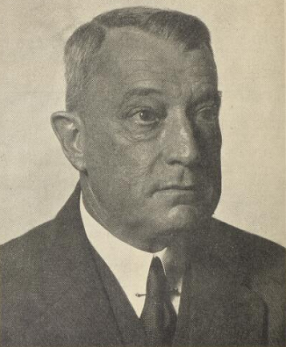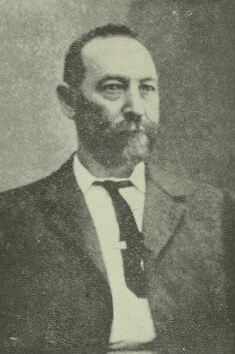 |
|---|
General elections were held in Fiji on 22 March and 8 April 1905. [1]
 |
|---|
General elections were held in Fiji on 22 March and 8 April 1905. [1]
The previous general elections had been held in 1871. Although fresh elections had been due to take place in 1873, they were cancelled after protests from Europeans about the plans to let Fijians vote. [2]
In 1904 a new Legislative Council was established, consisting of ten official members from the civil service, six elected Europeans and two Fijians chosen by the Governor from a list of six candidates provided by the Council of Chiefs. [1] Although Indo-Fijians were able to vote in municipal elections, voting practices in the community were considered suspect and the Governor noted that he "did not consider it necessary to provide for the representation of the Indians and Pacific Islanders because they had shown themselves open to corruption at the municipal elections." [3] Instead, the Indo-Fijian community was represented only by the Agent-General for Immigration, one of the six civil servants in the Council. [1]
The new constitution originally envisaged six elected members elected from four constituencies, of which two were geographic (the two-seat constituency of Suva and the one-seat constituency of Levuka) and two based on profession (a two-seat constituency of people involved in cultivating land for anything except sugar with at least 100 acres and a one-seat constituency for directors and managers of sugar companies). People involved in cultivating land were not eligible to vote in the geographic constituencies. [1]
However, prior to the elections, the electoral system was revised to combine the two non-geographic constituencies into a three-seat "Planters" constituency, which covered all of Fiji except Levuka and Suva. [1] [4] Voting was held in the Planters constituency on 8 April and in Suva on 22 March. [1]
| Constituency | Candidate | Votes | % | Notes |
|---|---|---|---|---|
| Levuka | David Robbie | Unopposed | Elected | |
| Planters | James Burton Turner | 127 | 23.7 | Elected |
| James Murray | 118 | 22.1 | Elected | |
| Adam Coubrough | 86 | 16.1 | Elected | |
| E. F. Powell | 77 | 14.4 | ||
| H. Shaw | 73 | 13.6 | ||
| J. H. Garrick | 32 | 6.0 | ||
| J. McConnell | 22 | 4.1 | ||
| Informal votes | 11 | – | ||
| Suva | Henry Marks | 74 | 28.4 | Elected |
| William McRae | 59 | 22.6 | Elected | |
| Simeon Lewis Lazarus | 57 | 21.8 | ||
| L. E. Brown | 28 | 10.7 | ||
| A. H. Ogilve | 20 | 7.7 | ||
| L. E. Benjamin | 8 | 3.1 | ||
| J. Callaghan | 6 | 2.3 | ||
| George Fox | 6 | 2.3 | ||
| G. L. Griffiths | 3 | 1.1 | ||
| Informal | 6 | – | ||
| Source: Ali | ||||
Following the elections Josefa Lala and Joni Madraiwiwi were appointed as the Fijian members. Lala died later in the year and his place was taken by Kadavu Levu. [5]
James Murray resigned during the term of the Council. In the subsequent by-election, Simeon Lewis Lazarus defeated H. Shaw by 105 to 62 votes, with four informal votes cast. [6]

Since becoming independent of the United Kingdom in 1970, Fiji has had four constitutions, and the voting system has changed accordingly.

The National Federation Party is a Fijian political party founded by A.D. Patel in November 1968, as a merger of the Federation Party and the National Democratic Party. Though it claims to represent all Fiji Islanders, it is supported, in practice, almost exclusively by Indo-Fijians whose ancestors had come to Fiji between 1879 and 1916, mostly as indentured labourers. However, in the 2018 general election, the party recorded a considerable change in its support base due to the inclusion of more indigenous Fijian candidates.

The Legislative Council of Fiji was the colonial precursor to the present-day Parliament, which came into existence when Fiji became independent on 10 October 1970.

General elections were held in Fiji between 26 September and 8 October 1966, the last before independence in 1970 and the first held under universal suffrage. The result was a victory for the Alliance Party, which won 23 of the 34 elected seats. Its leader Kamisese Mara became the country's first Chief Minister the following year.

Local elections in Fiji are held for two cities and ten towns. Each city or town has a council comprising between 8 and 20 members, elected for three-year terms, although the government announced legislation on 15 February 2006 to extend the term to four years. Each city or town council elects from among its own members a Mayor for one year. Consecutive terms are permitted.
James Ranchandar Rao was one of the three Indo-Fijians elected to the Legislative Council of Fiji in October 1929 when Indo-Fijians were given the first opportunity to elect their own representatives in the 1929 elections. The other two were Vishnu Deo and Parmanand Singh.
Andrew Indar Narayan Deoki was an Indo-Fijian statesman who served his community as a social and religious leader, soccer administrator, member of the Legislative Council and Senate in independent Fiji and as Attorney General.

General elections were held in Fiji on 23 March and 10 April 1908.

General elections were held in Fiji on 28 April 1911.

General elections were held in Fiji in 1923.

General elections were held in Fiji in 1926.

General elections were held in Fiji in 1929. They were the first in which Indo-Fijians were allowed to vote.

General elections were held in Fiji on 31 August 1932, although only one of the nine elected seats was contested.

Sir John Maynard Hedstrom was a Fijian businessman and politician. He served as a member of the Legislative Council for over 30 years. Alongside Robert Crompton, Henry Marks and Henry Milne Scott, he was one of the 'big four' that heavily influenced the Fijian economy and political sphere in the first half of the 20th century.

General elections were held in Fiji in July 1937, the first in which an equal number of Europeans and Indo-Fijians were elected.

General elections were held in Fiji in August 1956; voting took place in the Eastern constituencies between 11 and 18 August, and on 18 August in all other constituencies.

General elections were held in Fiji in September 1959, the last in which women and ethnic Fijians were still barred from voting. Voting took place in the Eastern constituencies between 5 and 12 September, and in the Northern and Western and Southern constituencies on 12 September.

Sir Henry Milne Scott was a Fijian lawyer, businessman, politician and international cricketer. Alongside Robert Crompton, Henry Marks and John Maynard Hedstrom, he was one of the 'big four' that heavily influenced the Fijian economy and political sphere in the first half of the 20th century.

Captain David Robbie was a Scottish-born businessman, planter and politician in Fiji. He served as a member of the Legislative Council between 1905 and 1908.